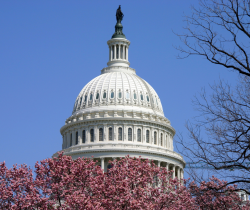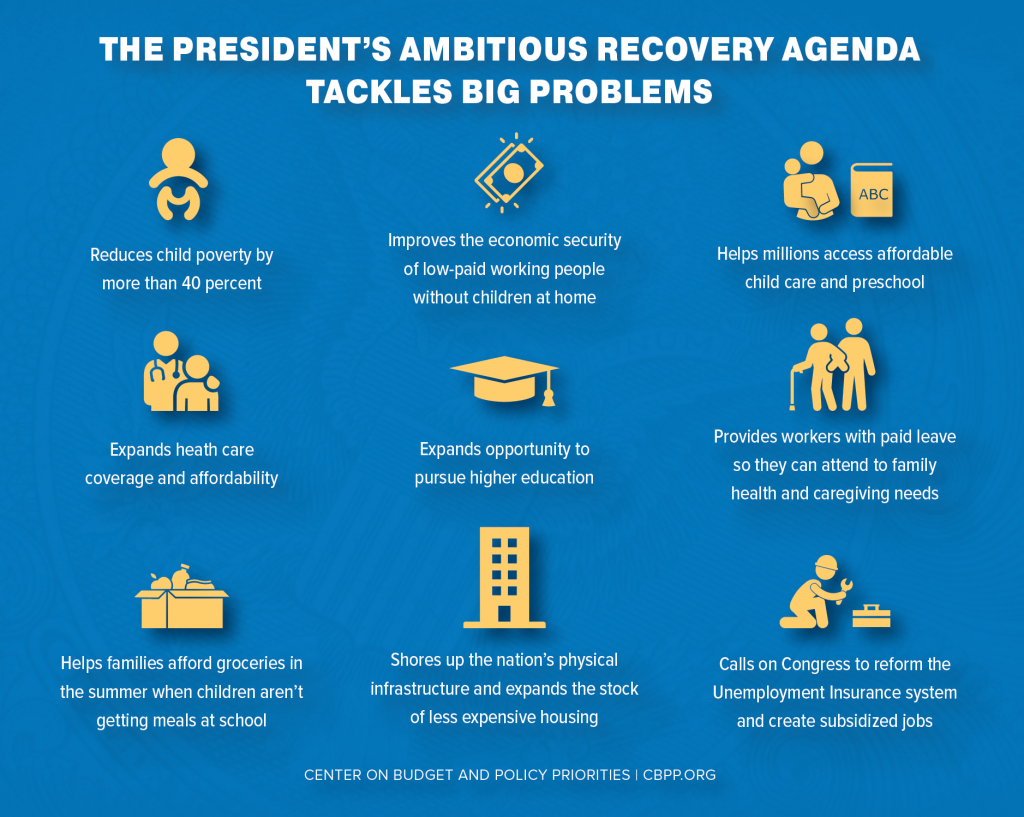
The President’s announcement of the American Families Plan yesterday puts us one step closer to seizing the historic opportunity to build a stronger recovery and a more equitable economy. We call on Arkansas’s congressional delegation to move swiftly to build on the President’s recovery proposals and craft legislation that improves the health and economic security for children, families, and working people.
The recently-enacted American Rescue Plan is providing much-needed relief to the people of Arkansas. But that relief is temporary. We can’t stop there if we want to build a more equitable economy for Arkansans, many of whom will continue to struggle to make ends meet after the pandemic ends.

The pandemic and its economic fallout have exposed glaring, long-standing problems that have held back families for decades: Racial and ethnic disparities in our nation, deeply rooted in racism and discrimination, mean that Black, Brown, Indigenous, and immigrant families face starkly unequal opportunities and outcomes in education, employment, health, and housing. Nearly 30 million people were uninsured even before the pandemic, despite progress under the Affordable Care Act. Many families can’t afford housing, child care, food, or other basic needs, and face serious economic instability if they lose their jobs or there’s a recession.
Economic recovery legislation must address these challenges to build a more equitable economy — one where everyone has health coverage and can get the care they need, where all our children have food on the table and a roof overhead, and where all our families can make ends meet.
The President’s recovery proposals in the American Jobs & Families Plans represent a ground-breaking agenda and include many important policies to create a more equitable economy. But Congress will need to address shortcomings in certain areas and add more details to the broad outlines that the President has put forward.
We urge Congress to craft recovery legislation that ensures that: (1) everyone has access to affordable health coverage, housing, nutrition, and child care, (2) all children can reach their full potential, protected from hardship by a permanent expansion of the Child Tax Credit and other investments, (3) low-paid working people are supported by a permanent expansion of the Earned Income Tax Credit, (4) our unemployment insurance system is strong and modern enough so that people out of work through no fault of their own can make ends meet until they can get back to work; and (5) subsidized jobs are available to people who face barriers in the labor market and struggle to find employment.
Our wealthy nation can afford to make these critical investments — and can’t afford not to. For decades, people at the very top and corporations have reaped outsized gains and used special tax breaks and loopholes to avoid paying all the taxes they owe. It makes sense, as the President has proposed, to ask the wealthiest among us and corporations to pay a fairer share of federal taxes to fund the investments that would help build a more economy that works for all of us.
###
ADDITIONAL BACKGROUND: POLICIES NEEDED FOR AN EQUITABLE ECONOMY:
Many of the policies we call for are included in the President’s plans and should be part of recovery legislation. In addition, Congress should address shortcomings in the President’s plans and further develop his proposals to build a more equitable economy. For example:
Congress should permanently extend the recent temporary improvements in the Child Tax Credit. The American Families Plan takes two important steps towards making these expansions permanent: (1) extending the Rescue Plan’s full Child Tax Credit expansion through 2025 and (2) making permanent its provisions to make the Child Tax Credit fully available to families with the lowest earnings (as well as permanently expanding the tiny EITC for adults who are not raising children in their homes). While these steps are important, Congress should go further and make the full Child Tax Credit expansion permanent. Improving these tax credits benefits will help 661,000 children in Arkansas.
In addition, Congress should provide multi-year housing assistance through vouchers. Though the President’s budget proposes an additional 200,000 vouchers for next year (a nearly 10 percent increase in the total vouchers available nationwide), the American Families & Jobs Plans do not provide the multiyear, guaranteed funding to expand housing vouchers that is needed to build a more equitable economy and make progress toward making housing vouchers available to everyone who is eligible. The Jobs Plan proposes significant funding to build and refurbish low-income housing, but Congress must include multi-year voucher funding in the recovery package as well.
And Congress should develop a strong subsidized jobs program and fix the unemployment insurance system, two investments that the President endorsed in the American Jobs Act but left to Congress to design.
